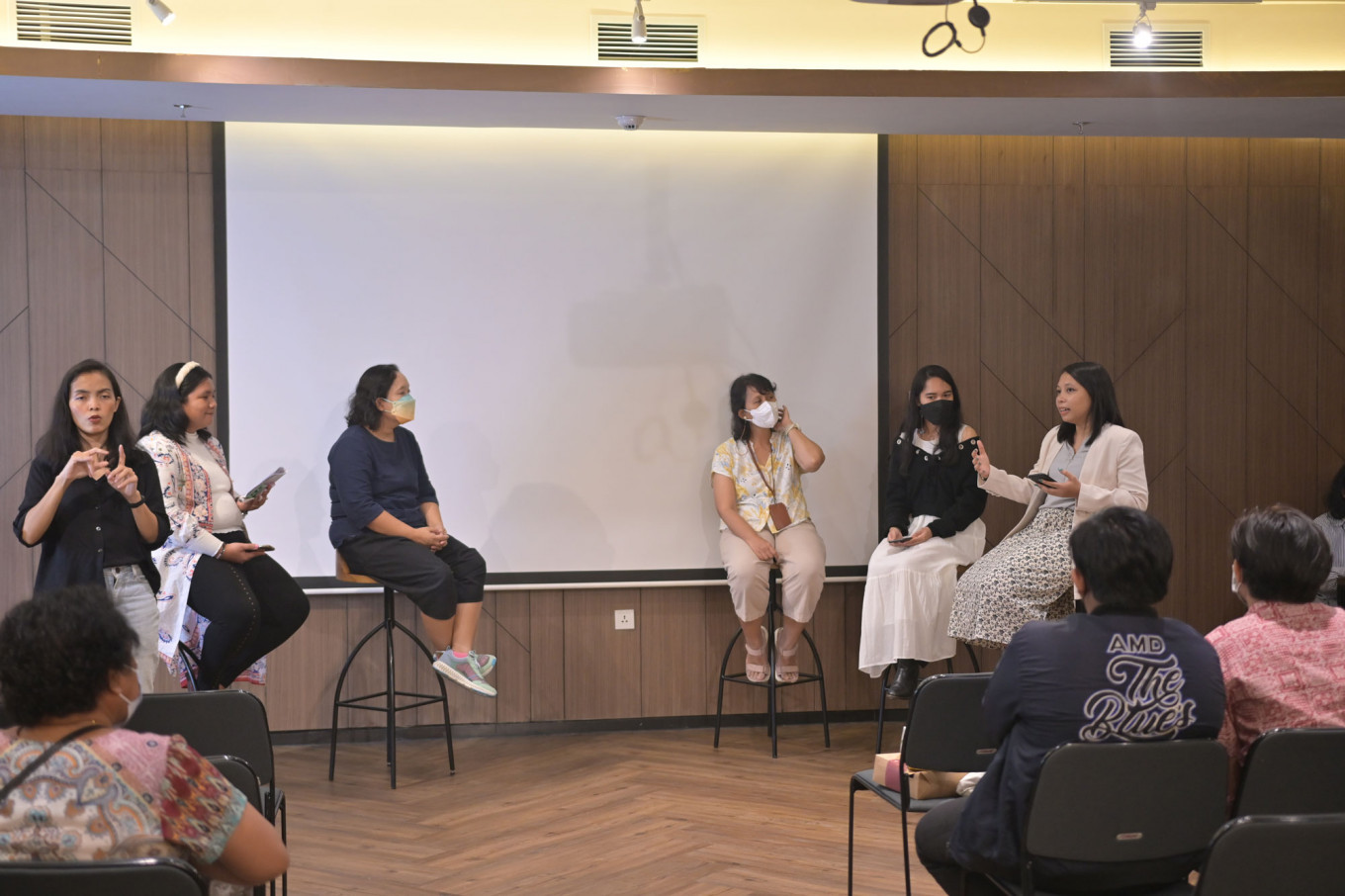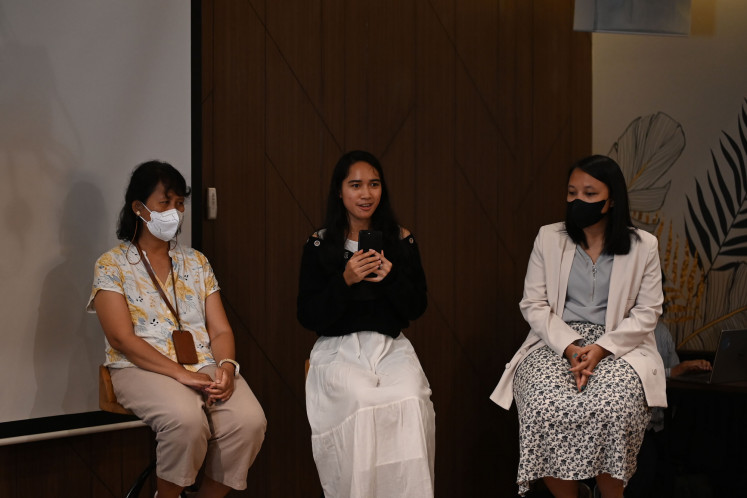Popular Reads
Top Results
Can't find what you're looking for?
View all search resultsPopular Reads
Top Results
Can't find what you're looking for?
View all search resultsPlan Indonesia highlights social media platforms as spaces to promote gender equality
According to data from We Are Social, social media users in Indonesia grew by 12.6 percent (21 million people) between 2021 and 2022.
Change text size
Gift Premium Articles
to Anyone
A
ccording to data from We Are Social, social media users in Indonesia grew by 12.6 percent (21 million people) between 2021 and 2022. By the start of 2022, there were 191.4 million social media users – more than half of the country’s population.
With such a large user base, social media platforms are a strategic space to promote gender equality and raise campaigns to combat violence against women and children. However, very few users have the awareness or courage to do so, as well as other challenges to campaigning.
Therefore, creative and strategic plans are needed from different organizations to craft a far-reaching digital campaign. Such were the findings in a baseline study done by Raise the Bar Project of Yayasan Plan International Indonesia (Plan Indonesia) in 2022.
“According to the study, 92 percent of 181 respondents – most of whom were female – said they were active social media users. However, only 48 percent showed interest in participating in gender equality campaigns. Therefore, we need to encourage campaigns in the digital space, as social media platforms hold strategic value,” said Plan Indonesia executive director Dini Widiastuti during a discussion titled Social Media: A Safespace for Children and Women in Jakarta on Dec. 9.
As part of the Raise the Bar project, the discussion also acted as a space to reflect, while inviting individuals and organizations to set a further agenda with the network to promote gender equality in the digital space.
Involved in the discussion were Raise the Bar Project coordinator Dewi Komalasari, founder and chief editor of Konde.co Luviana Ariyanti, Indonesian Data Journalism Network (IDJN) executive director Wan Ulfa Nur Zahra and digital communications specialist at Perspectiva, Indiana “Indi” Salsabila.
The algorithm challenge
Algorithms play an important role on digital platforms in determining the success of the delivery of campaign messages. Algorithms may be affected by the surrounding culture and political climate, which often result in content bias and discrimination.
“When campaigning for gender equality on social media, we need to be aware of the discussions and narratives currently happening in the community. It’s not just to make the campaigns more relevant, but also to enrich our perspective on the issues and ensure that algorithms can spread our message’s reach instead of covering it up,” said Indi during her presentation.
The rapid stream of information and ever-changing algorithms also result in the domination of patriarchal values on the platforms. Content voicing gender equality and women leadership is often drowned out by messages that perpetuate misogyny.
Therefore, Dini argued, there needed to be tactical steps in communicating on social media platforms, including by getting involved in the latest issues and stealing the audience’s attention.
“Through the Raise the Bar project, we want to bring a new perspective that gender equality goes beyond being strong enough to replace the water gallon. Voicing gender equality begins with the family, starting from dividing house chores equally without basing them on gender,” she added.
Collaborating with partners
Raise the Bar has also collaborated with strategic partners, such as state-owned enterprises (SOEs) with their Srikandi movement and business associations such as The Indonesian Employers Association (Apindo). The project also involved key opinion leaders (KOLs) and influencers in various campaigns, as well as content creators of various sizes to create challenges to attract younger users.
“Everything is designed to incite a discussion on gender equality as widely as possible. Furthermore, we also aim to shed some light on younger people’s experience when facing traditional gender norms, be it in the private domain or at work,” Dewi explained.
Media, including social media, can be utilized to create content that advocate for issues such as gender equality, women’s leadership and the involvement of women in changing the mindset and behavior of their audience in a transformative way. “We need to position ourselves as listeners to women’s experiences in order to realize a society that is equal and free from gender-based violence,” said Luviana.
Wan Ulfa added that data are crucial in supporting journalism as part of the campaigning efforts on social media. In addition to data, representation is essential in breathing life into a new narrative that gender equality is not meant to be negative.
“If the information that’s given out is positive information, such as gender equality, it can impact users positively and the knowledge they gain will escalate into actions in real life,” she added.











